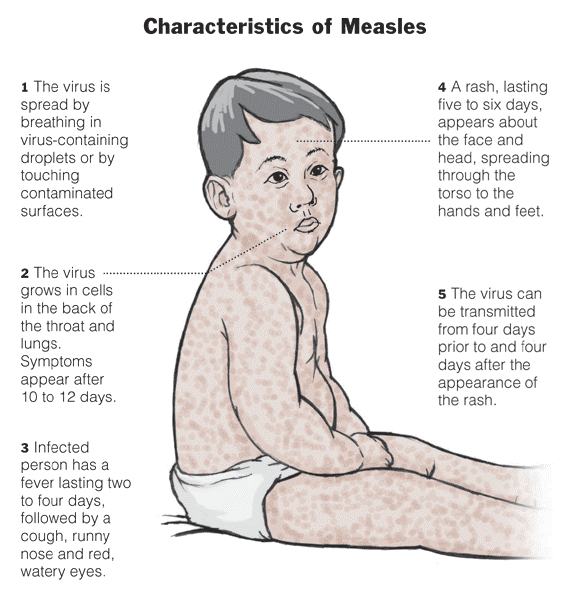Florida — On Tuesday, the Florida Department of Health confirmed a case of Measles in an unvaccinated adolescent in Indian River County. This brings the total cases of Measles between Indian River and St. Lucie counties to four.
Measles is a serious respiratory disease caused by a virus of the same name (Measles). The disease is highly contagious and can spread to others who are unvaccinated.
“Vaccination continues to be the best prevention against Measles,” State Surgeon General and Secretary of Health Dr. John Armstrong said. “Vaccination remains so important for children, adults and, families across our state to protect themselves and their communities from this serious and preventable infection.”
The Department is working with community health care partners and encourages all residents and visitors who have not been immunized to get vaccinated immediately. Vaccinations are available year round through health departments in Florida’s 67 counties or your local doctor’s office.
People who are particularly susceptible are pregnant woman, infants under the age of 12 months, and people who are immunocompromised.
Measles is spread through the air by breathing, coughing, or sneezing and is highly contagious. When a person sneezes or coughs, droplets spray into the air. The virus can live on surfaces or in an airspace where the infected person coughed or sneezed for up to two hours. It can be transmitted from four days before the rash becomes visible to four days after the rash appears. A typical case of measles begins with flu-like symptoms. The symptoms of measles generally begin approximately seven to 14 days after a person is exposed to someone with measles and include the following:
- Blotchy rash
- Fever
- Cough
- Runny nose
- Red, watery eyes (conjunctivitis)
- Feeling run down, achy (malaise)
- Tiny white spots with bluish-white centers found inside the mouth (Koplik’s spots)
People who develop these symptoms should contact their healthcare provider right away.
Measles is very rare in countries and regions of the world that are able to keep vaccination coverage high. There are still sporadic cases of Measles in the United States because unvaccinated visitors from other countries or unvaccinated U.S. citizens traveling abroad can become infected and spread Measles to unvaccinated or unprotected persons.
The Department said children should be immunized against Measles with the combination Measles, Mumps, and Rubella vaccine (MMR). Children should receive two doses, with the first at 12 to 15 months of age and the second at four to six years of age. When vaccinating adolescents and adults, two doses of MMR may be required. People with underlying health conditions should discuss additional booster doses with their health care provider to determine need.

